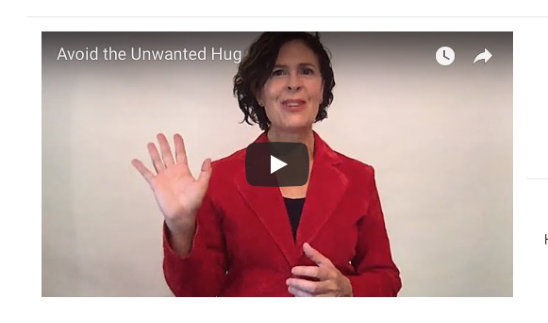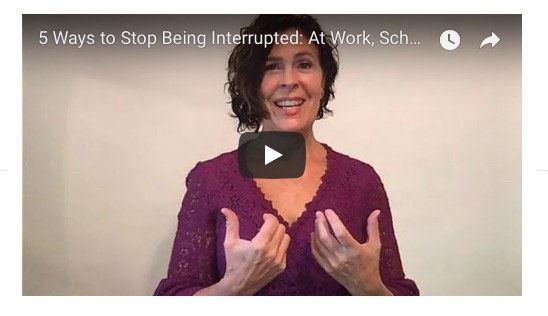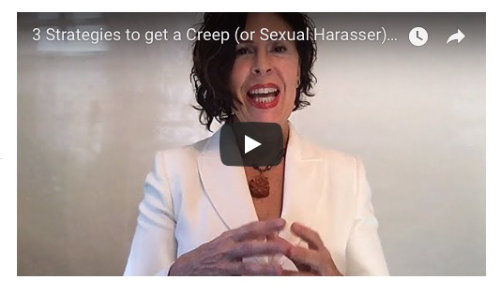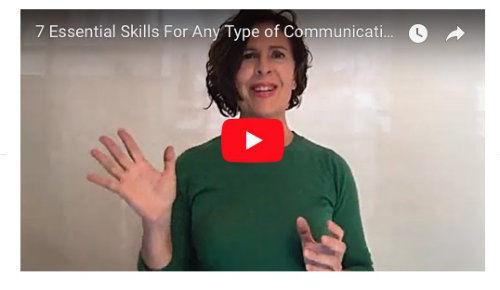
Sex
A Solution to Stopping Sexual Harassment
Is there a case for the re-education of men?
Posted January 5, 2018 Reviewed by Ekua Hagan

When I was a consultant at a large corporation, the head of the company ran his hands through my hair and laughed when I yelled at him. A homeless guy grabbed my bum and when I shouted, “Hey, you can’t do that!” he turned around and apologized. On the metro in Paris, when men wrapped their hands over mine on the pole and pressed their nether regions into me, I’ve ground a high heel onto the top of their foot. I’ve escaped rape five times in five different ways. There isn’t a single woman who doesn’t have a similar story of rape escape, an unwanted hug, a secret, or obvious grope — or a time when she wasn’t so fortunate.
There have been dozens of times when I haven’t stood or spoken up, when I didn’t evade that unwanted kiss. Last week, for example. I was attended an event where 100+ media reporters and producers congregated to hear pitches for pieces or shows. At the end of the last day, I got in line to share my 2.5-minute idea with a producer of a national TV show. When I told him about my True Shield: Verbal Self-Defense for Girls course and that I was a black belt in the Japanese martial art of Aikido, he exclaimed, “Ooooh, that makes you even sexier than you already are! I love powerful women.” I was mid-way through my time. He was keen on my idea for a future show. I shut my mouth shut and stepped back.
Like thousands of women before me, I made a judgment call. I could educate, retaliate, or do nothing. I chose to do nothing. Why? Because I wouldn’t have to work with this guy in the future so it wasn’t worth it to me to take the time to educate him.
I want to say, that there is a place for education, compassion, and consequences in all of the #MeToo-ness we’ve been experiencing. Had we been in the workplace together, I might have said what my best male friend, who is a commissioner in the courts of Los Angeles recommended: “I’m so glad that you gave me the opportunity to practice verbal self-defense right now.” Or, “What you just said is exactly the thing I’m talking about preventing. In the future, please don’t comment on what type of women you like when we’re having a professional conversation. Can we agree on that going forward?”
I might also have taken the time to educate him on his impropriety by doing three things.
- Naming the offending behavior.
- Letting him know the words and behavior I expect from him in the future.
- Getting his agreement on his future conduct toward me.

Here are the 7 steps I recommend as a starting point to stop sexual harassment.
-
Pay attention to your boundaries. Notice if someone consistently gets too close and create distance. Awareness of physical boundaries, as well as your surroundings, can head off an unwanted encounter before it happens.
-
Keep discussion about another person’s intent out of it when addressing unwanted or uninvited communication or contact. That way, you derail any unnecessary or distracting disagreement about feelings, judgments, or assumptions. Because the person's intent is not the issue, the impact of the person's behavior on you is the important point.
-
Communicate verbally or physically (or both) exactly what you want. This can mean using the (slightly painful) pinky grab to peel an arm off of your shoulder. A non-verbal message in the form of a look of pain or confusion can sometimes be more powerful than words.
-
State the behavior you expect going forward.
-
Reiterate your agreement about behavior and communication if, in the future, it’s forgotten or disrespected.
-
Take the issue to HR if the behavior doesn’t change per your repeated request. I love the idea of women meeting monthly to discuss between them any unwanted touch or comments so they can nip the behavior in the bud and take appropriate action. And since HR can’t be impartial…
-
Have a separate, unbiased party that decides the seriousness of the harassment and the outcome. i.e. education/training, suspension or firing, like the policies these women tomato pickers got implemented to protect them against predators in the fields. To be effective in stamping out sexual abuse, “The consequences for behavior that crosses the line, … had to be swift and visible to all.”
Because here’s the thing: Relationships between men and women can be clear cut or nuanced. There’s no question that someone in power masturbating in front of you is gross misconduct. But there are thousands of variations of slightly inappropriate to extremely inappropriate behavior that we women deal with every single day in and out of the workplace.

Most of the women I know feel very uncomfortable speaking up — even when their livelihood isn’t on the line. As outspoken as I am, I’m one of them. Though I’m a media trainer and have worked with thousands of people helping them to speak their minds, stand their ground and share their vision, it’s not that easy.
Right now the culture, laws, and policies are not protecting us. So, during this transition, where the current legal and corporate structures are being examined and revised, we girls and women need to start standing and speaking up to any words or behavior that make us uncomfortable. It’s not easy to do because most of us have little practice doing it.
What do I recommend? Person-to-person role-play in a safe environment where women have the opportunity, in a woman only environment, to practice verbal and physical self-defense in the most difficult and dangerous situations. This “practice” will ingrain into mental and muscle memory the words and actions women can take in the moment, on the spot.
When I talked to PE teachers in Marin County about implementing such a program for their teens they asked, “How long will it take for girls to learn this?”
I responded, “How long will it take to be able to shoot a basket and make it?”
Practice. Tweak. Practice. Try something new. Practice. If we’ve never done something before, how can we expect to be instantly good at it?
Is there a case for the re-education of men? Even asking this question may anger many. I know it makes me mad.
When I talked to the CEO of the largest women’s self-defense organization in the country she said that the number one question women ask when enrolling themselves or their daughters in their courses is, “Why is no one teaching a class to boys/men on not to rape?” I know that there are a few organizations making headway. But not enough.

You may ask, “Why is this my job?” Or, “Why weren’t they taught this growing up?” Or, “This should be common sense.” Yes. And we need to deal with what is, not what we hope the future will bring without our input.
Or, in the words of Senator Al Franken, “Over the last few months, all of us—including and especially men who respect women—have been forced to take a good, hard look at our own actions and think (perhaps, shamefully, for the first time) about how those actions have affected women.” Indeed. Shame on them.
But let’s use some common sense here when defining how we’re going to deal with sexual misconduct in all its forms. Punishing immature behavior like the Al Franken fake boob grope does not deserve the same reprisal as Roy Moore or Harvey Weinstein’s conduct. Let’s not use a sledgehammer to smite an ant or it weakens the very cause we’ve worked so hard to bring to the forefront.
I’m advocating that each one of us, men and women alike, take personal responsibility for our thoughts, beliefs and actions — regardless of the law. Do I want the laws to protect us women? Of course. Do I think that’s likely? Not really.
I think that the legislature, laws and policies can support our personal actions and choices and help bring perpetrators to justice, discipline those whose haven’t responded to reprimands, and serve as a call to better behavior for those who are walking the line. Eventually.

For the past 28 years, Susan has been the brains + heart behind Harrow Communications, a media coaching + marketing agency based in the San Francisco Bay Area.



